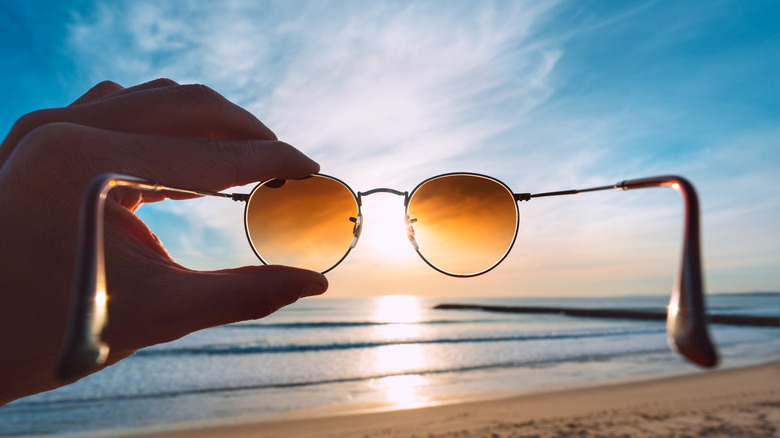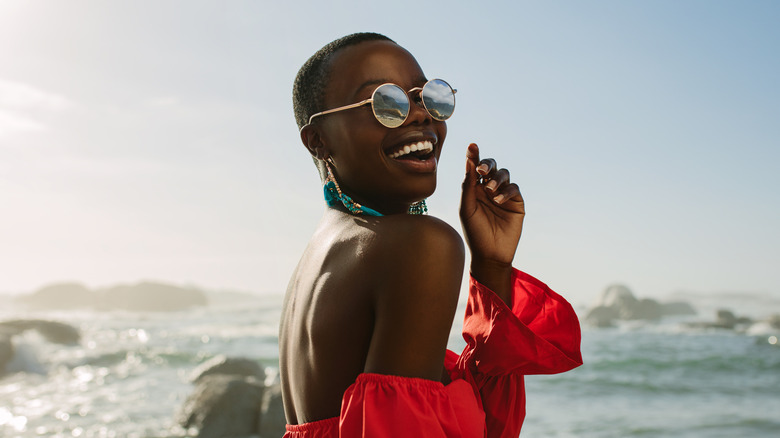How To Know If Your Sunglasses Are Really Protecting Your Eyes
With frequent heatwaves reaching all-time record highs around the world, it seems that peak sunglasses (and sunscreen, for that matter) season is here to stay (via Washington Post). They're no longer mere glossy sidekicks to your summer outfit — they're also weapons to use against harmful UV ray exposure, which has increased markedly over the last several decades, per NASA. However, not all sunglasses are made equal.
"The biggest danger with poor sunglasses is if the glasses are tinted but do not block the UV rays," ophthalmologist Benjamin Bert tells Healthline. "The tinting in the glasses causes the pupils to dilate, since it is perceived as being darker, without the UV blocking. Then more ultraviolet radiation is able to enter the eye." Optometrist Amanda Rights adds that "the longer the eyes are exposed to UV radiation, the greater the risk of developing these conditions," referring to cataracts and sunburns in your eyes (yes, that's possible!).
The best sunglasses should have UV ray protection
Accessorizing for global warming can be intimidating, but an easy way to know whether or not you're buying the right sunglasses is to read the labels. And we're not talking about just the brand (although knowing that can help too). According to the University of Utah, your sunnies should come with a UV protection label that says "100% protection against both UVA and UVB" or "100% protection against UV 400."
Although most sunglasses today come with UV protection embedded in the lens, there are some that only coat the lens — the trendy ones you find at a fast-fashion brand or the retro pairs you pick up at your local vintage boutique may not cut it. Older sunglasses tend to be more tinted, but darker sunglasses do not necessarily equal higher UV protection. The best way to know for sure is to take them into an optical shop and get them tested in a photometer. As ophthalmologist Jeff Petey says, "Sunglasses are to the eyes what sunscreen is to the skin. Whether it's cloudy [or] sunny, they are an essential shield to protect your health" (via the University of Utah).
It looks like hot girl summer just got a little less reckless — accessorize responsibly!

